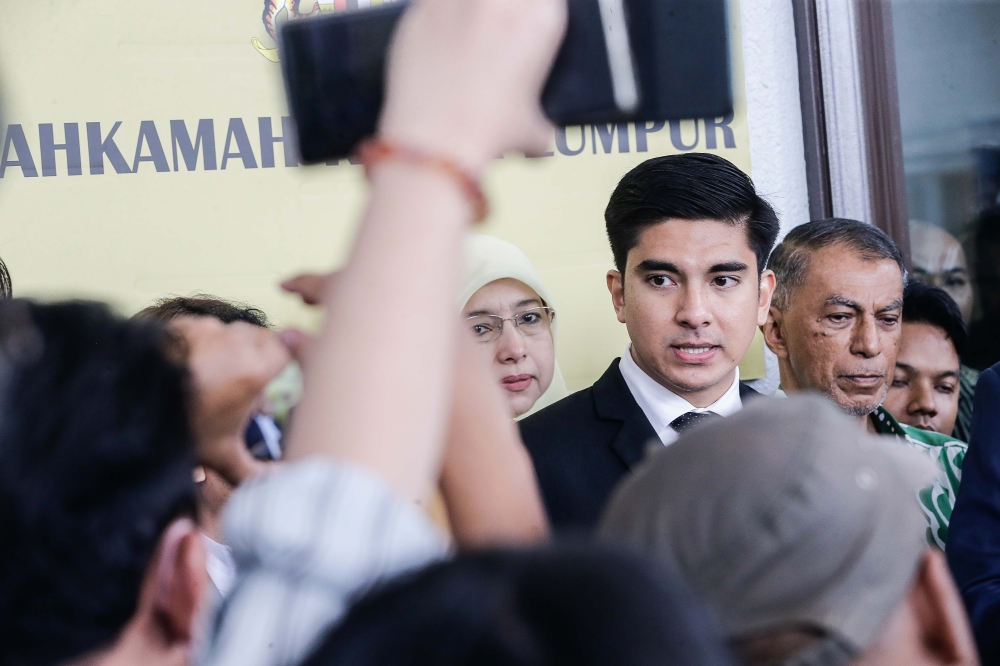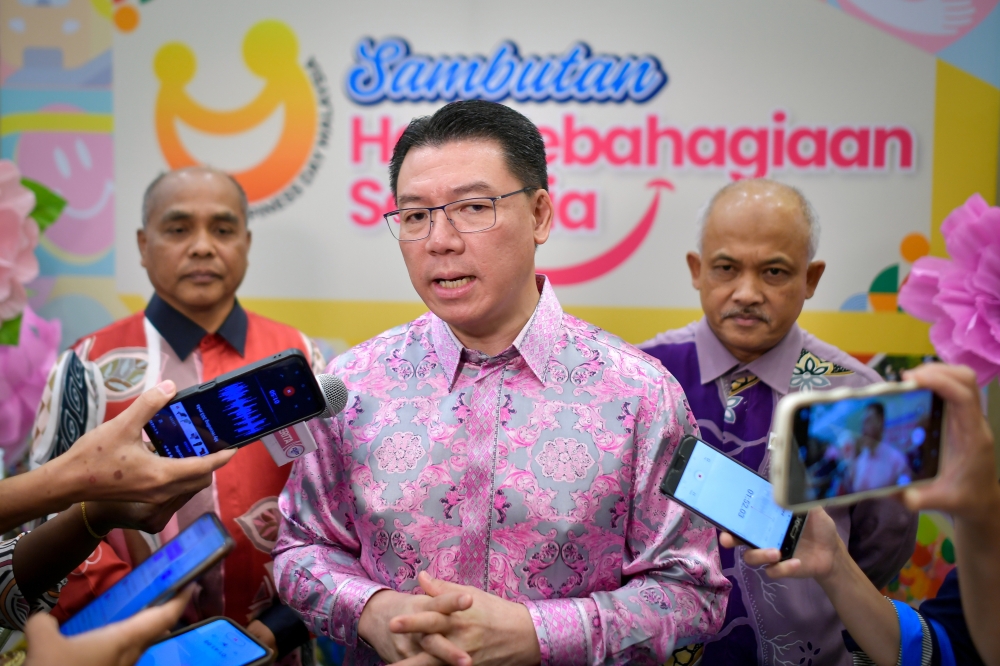MARCH 21 — Words have great power in the political sphere. From compelling speeches to well-crafted slogans, the strategic use of language is indeed one of the defining factors between political success and failure. This is a fact known and accepted by politicians far and wide. Hence, language is a tool politicians intelligently use to influence opinions, urge action, and ultimately win over the hearts of many.
Rhetoric as a tool of persuasion
We often hear the word rhetoric thrown around in a chaotic political discourse. Rhetoric, which has roots in ancient Greece, is a fundamental component of political communication. It carries two different meanings depending on the context it is used. If used positively, rhetoric means a speech or writing intended to be effective and influence people. However, if it is used disapprovingly, rhetoric means clever language that sounds good but is not sincere or has no real meaning.
In order to capture and maintain audience engagement, politicians have been observed to employ rhetorical strategies such as emotional appeals, repetition, and the use of metaphors. Martin Luther King Jr. aptly utilised this strategy through his famous “I Have a Dream” speech. The speech’s poetic language, vivid imagery and profound message made the speech resonated with the audience. Another political figure who is also remembered for excellent use of rhetoric is The Dragon Lady of Philippines; Miriam Defensor Santiago. Her speeches were characterised by sharp wit, bold eloquence, and profound insights. During one of her campaign trails, she posed a question “ Question, do all fairytales start with a once-upon-a-time? Answer, no! Others start with if-you-vote-for-me”.
These examples illustrate how rhetoric, when skilfully employed, can captivate audiences, inspire action, and solidify a politician’s legacy. Whether through emotional appeals, humour, or vivid imagery, rhetoric continues to be a fundamental force in shaping political narratives
Framing and messaging
Politicians commonly employ framing as a strategic linguistic tool to structure narratives and guide public interpretation of issues. Consider the terms “climate crisis” and “climate change” . While both refer to the same phenomenon, the term climate crisis conveys a sense of urgency and severity, whereas the term “climate crisis” sounds more neutral and less immediate. Framing is a strategy Asean politicians use to manage diplomatic ties when Malaysia and our neighbouring countries experience haze. The two terms used during this period are “haze pollution” and “transboundary haze”. “Haze pollution” is often used by affected countries to emphasise the harmful impact of forest fires. It frames the issue as an environmental crisis caused by irresponsible land-clearing practices, which leads to severe air pollution, health risks, and economic disruptions. Meanwhile, “transboundary haze” is used in Asean diplomatic discussions, softening the blame by acknowledging that haze affects multiple countries and requires regional cooperation. It shifts the focus from blaming a single nation to promoting collective responsibility and policy solutions. Thus, it is clear that linguistic framing is an effective language tool to shape discourse, influence policy making, and determine how political challenges are perceived and addressed.
Emotional connection: The key to winning hearts
John C. Maxwell wrote in his book that one cannot move people to action unless one moves them with emotion. According to him, the heart comes before the head. Therefore, evoking emotions amongst the masses is one of the strategies in a politician’s playbook. The most effective way to stir emotions is to deploy words. The former US president, Barack Obama is a prime example of a politician who used upbeat language to invoke the emotions of the Americans. His campaign slogan “Yes, We Can!” aimed at evoking the sense of hope, unity, empowerment, and collective action. Through carefully chosen words, Obama was able to reassure his countrymen that despite their struggles and divisions, change is possible. It is common for politicians to drum on common ideals of their target audience.
A current example of this strategy utilisation can be seen in our homeground. Known for his charismatic and relatable communication style, Syed Saddiq has successfully appealed to the emotions of Malaysians in his effort to advocate for equitable funding, particularly in his campaign to secure financial support for Muar. Syed Saddiq incorporates inclusive pronouns like we and us to reinforce the collective identity with the people of Muar. He further reinforces this sense of togetherness through phrases such as “We must stand together” and “This is our fight”. Furthermore, he enhances his connection with not only the people of Muar but with Malaysians as a whole by consistently demonstrating gratitude, optimism, empathy, and relatability.
Ultimately, the ability to forge an emotional connection through language is a defining characteristic of influential leaders.

Syed Saddiq Syed Abdul Rahman speaks to the press after his conviction by the High Court in Kuala Lumpur on Nov 7, 2023. — Picture by Sayuti Zainudin
Language and identity
Politicians frequently utilise language to appeal to particular linguistic or cultural groups in distinct societies. This is usually practised in countries which are multilinguals and can involve speaking to voters in their mother tongue or using expressions that are culturally appropriate. Speaking in the same tongue as their voters can help politicians build trust, foster relatability, and strengthen connections.
Steven Sim Chee Keong is an excellent example of a politician who effectively uses linguistic and cultural strategies to connect with diverse communities. He frequently uses Bahasa Melayu in his speeches and public engagements, ensuring accessibility to the majority of Malaysians. Additionally, he incorporates Hokkien — a widely spoken Chinese dialect in Penang when addressing local Chinese communities. There are also other politicians who include short phrases or words from Tamil or Chinese to resonate with the diverse ethnic in Malaysia.
This strategy is not just about communication but also about building emotional and cultural bridges. When done authentically, they can significantly enhance a politician’s credibility and relatability
The future of political language
The terminology used in politics is changing in the digital age. Long speeches are now frequently overshadowed by succinct, powerful content on social media sites. Politicians now realise that they can reach younger audiences with the use of hashtags, memes, and viral videos. The saturation of social media content poses a challenge for politicians to stay relevant and get their message across. This also highlights the challenge of maintaining nuance in an ever-evolving media environment
In the end, politicians who want to win over the public still rely heavily on language. The words they use, whether in moving speeches, relatable tales, or calculated marketing, have the power to sow division and mistrust or to engender hope, mend rifts, and pave the way for societal advancement. It is crucial for voters to assess politicians’ linguistic strategies critically in order to determine whether or not they are sincere, honest, and genuinely committed to the common good.
* This is the personal opinion of the writers or publication and does not necessarily represent the views of Malay Mail.







